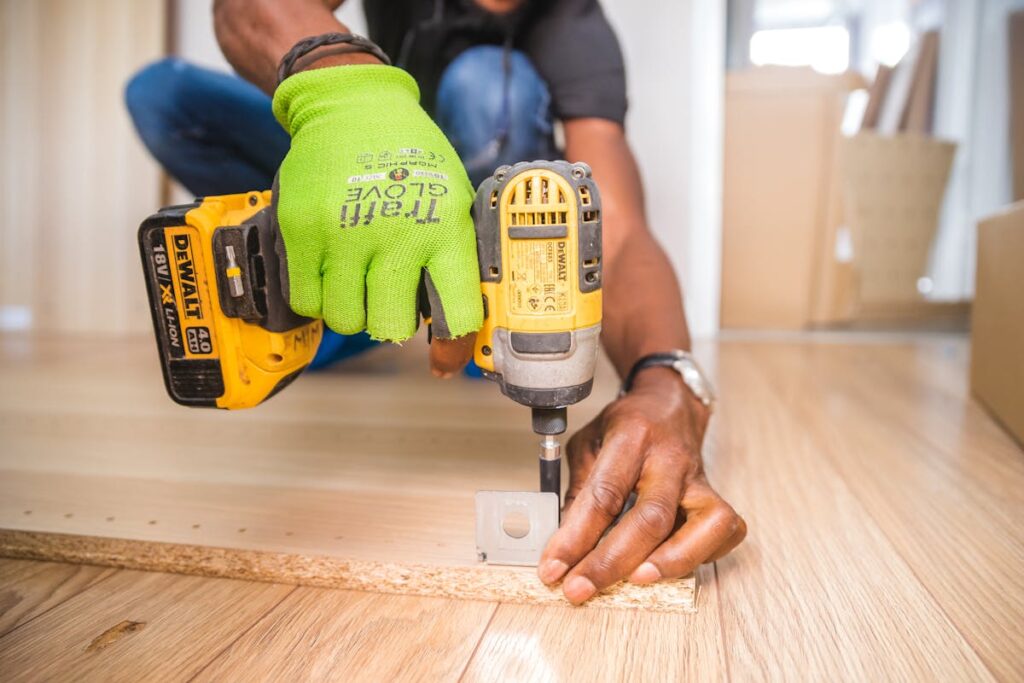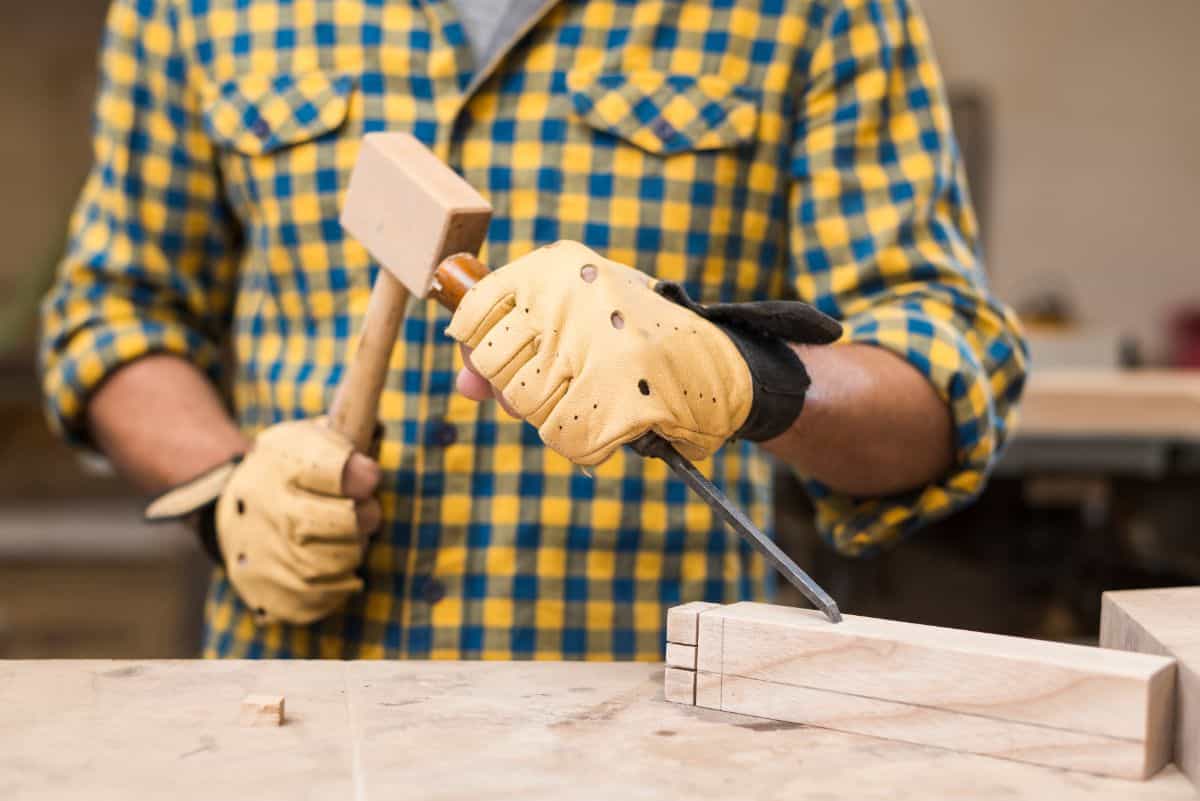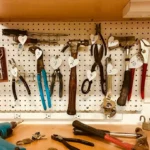Carpentry is more than just a trade; it’s an art form that combines precision, creativity, and functionality. For those new to woodworking, starting your journey can feel both exciting and overwhelming.
This guide is designed to help beginners establish their carpentry workshop and gain the confidence to tackle their first projects with ease.
Let’s dive into how you can turn raw materials into beautiful, functional pieces.
Table of Contents
Why Start a Carpentry Workshop?
Starting your own carpentry workshop gives you the freedom to create customized projects while learning valuable skills. Beyond the satisfaction of building something with your hands, carpentry fosters problem-solving and creativity.

Whether you’re looking to build furniture, fix items around the house, or even start a small business, carpentry opens doors to countless possibilities.
Additionally, having a dedicated space for carpentry ensures safety and organization. With the right tools and setup, you can work efficiently while minimizing risks.
Setting Up Your Carpentry Workshop
Choosing the Right Location
Selecting the ideal location for your workshop is crucial. A garage, shed, or basement can be perfect starting points. Ensure the area is well-ventilated and has ample lighting. Sufficient space is essential for accommodating tools, materials, and workpieces.
Invest in a sturdy workbench as the centerpiece of your workspace. It should be durable, the right height for comfort, and large enough to handle various tasks. Consider installing pegboards or shelves to keep tools organized and easily accessible.
Essential Tools for Beginners
Beginner carpenters don’t need to buy every tool under the sun. Start with these essentials:
- Measuring Tools: Tape measure, square, and a marking gauge are must-haves.
- Cutting Tools: Handsaw, coping saw, and a jigsaw for basic cuts.
- Fastening Tools: Hammer, clamps, and a set of screwdrivers.
- Shaping Tools: Chisels, a plane, and sandpaper for smoothing edges.
- Power Tools: A drill and circular saw are versatile additions as you progress.
As your skills advance, you can expand your collection to include routers, planers, and specialty tools.
Materials: Understanding Wood Types
Softwoods vs. Hardwoods
Softwoods like pine and cedar are affordable and easy to work with, making them ideal for beginners. They are perfect for projects like shelves, birdhouses, and simple furniture.
Hardwoods, such as oak and maple, are denser and more durable. While they’re more challenging to work with, they’re excellent for crafting long-lasting pieces like tables and cabinets.
Reclaimed Wood
Reclaimed wood is an eco-friendly and cost-effective option. Salvaged wood from pallets or old furniture can add character and uniqueness to your projects. Always inspect reclaimed wood for nails, screws, and damage before use.
Safety First in Woodworking
Safety should always be a priority in your carpentry workshop. Here are some essential tips:
- Protective Gear: Wear safety glasses, gloves, and ear protection.
- Dust Management: Use a dust mask and keep the workspace clean to avoid respiratory issues.
- Tool Safety: Always follow manufacturer instructions and unplug power tools when changing blades or bits.
- Proper Storage: Keep sharp tools and hazardous materials out of reach when not in use.
Taking these precautions will help you enjoy a safe and productive woodworking experience.
Beginner-Friendly Carpentry Projects
Simple Wooden Shelf
A wooden shelf is a practical and straightforward project for beginners. It helps you practice measuring, cutting, and assembling pieces accurately. Choose softwood for easier handling, and use screws or brackets for stability.
Basic Toolbox
Building a toolbox is another great starter project. It allows you to familiarize yourself with joining techniques while creating something you can use in future carpentry endeavors. Use durable wood and add a handle for portability.
Tips for Success in Carpentry
Practice Makes Perfect
Repetition is key to mastering carpentry skills. Start with small projects and gradually increase complexity. Don’t be afraid to make mistakes—they’re part of the learning process.
Stay Organized
An organized workshop boosts productivity and minimizes errors. Label tools, store materials neatly, and clean up after every session. Keeping your workspace tidy makes finding what you need faster and easier.
Expanding Your Workshop as You Grow
As you gain experience, you may find the need to upgrade or expand your carpentry workshop. Consider these steps:
- Invest in Advanced Tools: Tools like routers, jointers, and table saws can enhance the quality of your projects and open up new possibilities.
- Upgrade Storage Solutions: As your tool collection grows, add cabinets, racks, or modular storage units to keep everything organized.
- Optimize Your Workflow: Arrange your workspace to minimize movement between tasks, making your process more efficient.
- Incorporate Technology: Modern woodworking apps and software can help you design projects, calculate measurements, and visualize your builds before starting.
Taking these steps will ensure your workshop evolves alongside your skills, providing the resources needed to tackle more ambitious projects.
The Joy of Carpentry: A Lifelong Skill
Woodworking is a rewarding hobby that combines creativity with functionality. As you complete more projects, you’ll not only enhance your skills but also gain the confidence to tackle ambitious builds. Each piece you create becomes a testament to your growth and craftsmanship.

By following this guide, you’ll be well on your way to establishing a carpentry workshop that’s both efficient and enjoyable. Whether you’re crafting simple shelves or intricate furniture, the journey is as fulfilling as the results. Start today and embrace the art of woodworking.
Conclusion
Setting up a carpentry workshop as a beginner is an exciting venture filled with opportunities for learning and creativity. With the right tools, materials, and a focus on safety, you can transform your workspace into a haven for woodworking.
Remember, each project you complete adds to your experience and skillset, paving the way for more complex creations.
Whether you’re taking up carpentry as a hobby or exploring it as a potential business, the journey is incredibly rewarding. Dive in, stay curious, and watch your passion for woodworking grow. Let your carpentry workshop be the starting point for countless inspired creations.





